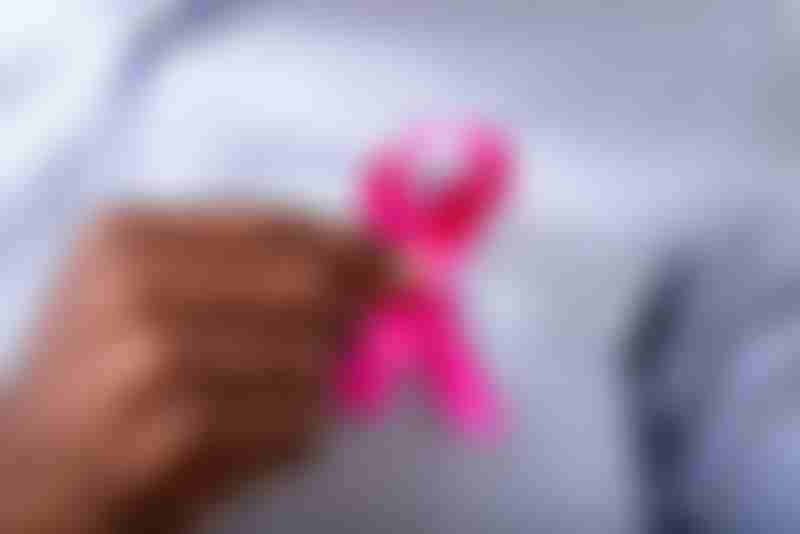Understanding and Addressing Breast Cancer in Men

Source: Shutterstock
Can men get breast cancer?
Unfortunately, while not as common, men can also get breast cancer. It may come as a surprise that men have breast tissue too, and breast cancer can develop in the breast tissue of any individual, regardless of one’s biological sex at birth. Since women tend to have more breast tissue than men, it is naturally more prevalent in women and less common in men. As such, breast cancer in men accounts for less than 1% of all breast cancer cases in the United States. Given the slight risk of men getting breast cancer, it is imperative to know the common symptoms of men breast cancer to promptly seek medical attention for early detection. To encourage greater awareness and understanding of breast cancer, it is important to recognize that everyone is susceptible to this disease, irrespective of their sex.
Why do men get breast cancer?
As with breast cancer in women, the reason why men get breast cancer is not entirely clear. However, certain general as well as male-specific risk factors may increase one’s chances of developing breast cancer.
- Age
The risk of breast cancer increases with age, and the majority of male breast cancer cases occur in older men. The average age of men with breast cancer is 72.
- Family history
Having a close relative, regardless of biological sex at birth, with breast cancer can increase a man's risk of getting breast cancer.
- Genetic factors
Mutations in certain genes, such as BRCA2, PALB2, and PTEN, can increase the risk of male breast cancer. Men with these gene mutations have a higher lifetime risk of developing breast cancer compared to the general population.
Learn more: Genetics and Male Breast Cancer
- Radiation exposure
Prior radiation therapy to the chest area, such as Hodgkin lymphoma treatment, increases the risk of male breast cancer.
- Hormonal imbalance
Conditions that alter hormone levels, such as Klinefelter syndrome (an extra X chromosome in males), liver disease, obesity, or hormonal treatments, may increase the risk of male breast cancer.
- Estrogen exposure
Prolonged exposure to estrogen, either through estrogen replacement therapy or occupational exposure to estrogen-like compounds, can raise the risk of breast cancer in men.
- Testicular conditions
Certain conditions, such as undescended testicles (cryptorchidism), mumps orchitis, testicular injury, or having both testicles surgically removed (orchiectomy), have been associated with an increased risk of male breast cancer.
It is important to note that having one or more risk factors does not guarantee that an individual will develop breast cancer. Many men with breast cancer have no identifiable risk factors. Regular self-examination and prompt medical attention for any breast abnormalities are essential for early detection and better treatment outcomes.
Symptoms of breast cancer in men
The common symptoms of breast cancer in men include:
- Swelling or lump in the breast
The most common symptom of breast cancer in men is the presence of a painless lump or swelling in the breast tissue or under the nipple. The lump is usually firm and may be located in one breast or both.
- Nipple changes
Changes in the nipple can include retraction (pulling inward), inversion (turning inward), or a change in shape or position. The nipple may also become red, scaly, or develop crusts or ulcers.
- Nipple discharge
Discharge from the nipple is another possible symptom. The discharge may be bloody or clear and can occur spontaneously without squeezing or stimulation.
- Changes in the breast skin
The skin of the breast or nipple may appear puckered, dimpled, or have an orange-peel texture. It may also become red, inflamed, or develop sores.
- Unexplained pain or discomfort
While breast cancer is typically painless in its early stages, some men may experience breast pain, tenderness, or discomfort. However, these symptoms are more commonly associated with noncancerous conditions and injuries to the breast.
- Enlarged lymph nodes
In some cases, breast cancer can spread to lymph nodes under the arm or near the collarbone. A lump or swelling may be felt before the original breast tumor can even be felt.
Recognizing the symptoms of breast cancer in men can be challenging as it is not a disease commonly associated with men. As a result, many symptoms may often be ignored or linked to other causes. It is important not to rule out male breast cancer when experiencing these symptoms as it may delay diagnosis and treatment. If you have any of these symptoms, consider getting a doctor’s opinion. Fortunately, not all symptoms indicate breast cancer. Some non-cancerous breast conditions in men, such as gynecomastia, also result in symptoms similar to that of male breast cancer. When faced with abnormal breast changes, getting a healthcare professional’s opinion is best.
Learn more: Non-cancerous Breast Conditions in Males
Treatment for breast cancer in men
The treatment for breast cancer in men is similar to that for breast cancer in women. Commonly used treatment strategies include breast surgery, radiation therapy, chemotherapy, hormone therapy and targeted drug therapy.
Addressing the stigma of breast cancer in men
Breast cancer in men is a rare condition, but even its symptoms can have a mental impact on those affected. One of the primary emotional aspects that many men may feel is the feeling of denial and shock that the discovery of a lump or thickening in the breast tissue may be breast cancer. Unfortunately, social stigma and cultural misconceptions surrounding breast cancer can exacerbate these emotions, making it crucial for individuals to seek support from loved ones, healthcare professionals, and support groups to navigate the challenges accompanying male breast cancer.
Learn more: The Stigma of Male Breast Cancer - Insights From a Survivor.